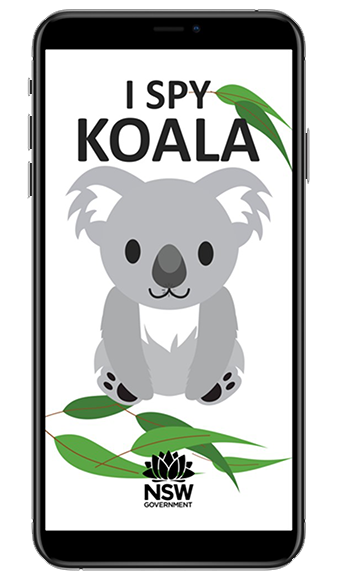There are many opportunities to get involved in helping save our koalas and other native wildlife. You may want to protect and restore koala habitat on your land, report on koala sightings and health, volunteer as a wildlife rehabilitator or join a community conservation group.
You can also manage your dog to help stop dog attacks and drive carefully through koala habitat to reduce the chance of hitting a koala.
Join or support a wildlife rehabilitation group
The NSW Koala Country webpages bring together people and organisations working on koala conservation activities, providing resources and opportunities for the community to get involved in protecting our koalas. In this section of the website, you'll find a list of organisations that are dedicated to the rescue and rehabilitation of sick, injured and orphaned koalas in your area, along with other koala conservation groups that need your help.
Report koala sightings
You can contribute your koala sightings to the NSW Government's BioNet Atlas database using the 'I Spy Koala' app (visit the Apple or Google app stores to download the I Spy Koala app.). All information in the database is made publicly available through the NSW Government's Sharing and Enabling Environmental Data (SEED) portal.
We encourage you to continue to report any injured and sick koalas directly to your local licensed wildlife rehabilitation group.
Help sick and injured koalas
If you see a sick or injured koala, you should contact a licensed rehabilitation group or call us on 1300 361 967. The NSW Wildlife Council can also help you locate authorised volunteer wildlife rehabilitator.
Signs of a sick koala can include infected or inflamed eyes (conjunctivitis), a wet and dirty bottom (cystitis) and sitting at the base of a tree for an extended period of time.
When a koala is on the ground injured or sitting at the base of a tree for an extended period of time:
- if it is safe to do so, approach the koala from behind and place a washing basket (or similar item with ventilation) over the koala
- put something heavy on top of the basket to stop the koala moving away and climbing a tree
- ensure the koala is left in a quiet and stress-free environment
- call a local wildlife rescue group or vet as soon as possible
- don't try to move the koala other than out of harm's way, as relocating the koala to a new area can sometimes do more harm than good.
When a koala is stuck in a fence:
- don't try to help the koala
- provide some shade for the koala if it is in the sun
- call a local wildlife rescue group, or vet as soon as possible.
Other ways you can help koalas
There are actions we can take, individually and as a community, to reduce some of the major threats to koalas and keep them safe.
Dogs can seriously harm koalas:
- Keep dogs on leads in areas where there are koalas. Be aware that koalas spend more time moving between trees on the ground during mating season (generally September to February).
- You can work with local interest groups to investigate fencing recreation areas for dogs or consider establishing dog-free properties in koala population areas.
- Report stray or roaming dogs to council rangers.
When driving, stick to speed limits, be vigilant near koala crossings and be aware of signposts warning that koalas are in the area.
If you see 'floppy fences' (fences with a curved top) protecting a koala community from the road with holes or openings or branches touching the fence, please report this to Transport for NSW on 13 22 13.
Your local council may be undertaking tree planting initiatives that will support koala communities, such as corridor restoration through a Bushcare group.
Koalas prefer particular feed trees in different parts of New South Wales. Therefore, it is important to remember to use locally sourced koala feed tree stock and to plant near existing koala habitat with a permanent water source.
You can find a list of koala food trees suitable for your region in A review of koala tree use across New South Wales, which identified evidence of koala use for 137 tree species across the state.
Effective koala conservation requires collective action. Partner with us to help conserve koalas and their habitat in New South Wales.
Recognising the important role of collaborative partnerships in koala conservation, the NSW Government is looking to form strategic partnerships with businesses, impact investors, corporates and non-government partners.
These partnerships will help to deliver a range of different projects that will make a difference to koala populations in New South Wales.
If you’re interested in discussing partnership opportunities, please complete an expression of interest form.
View Partnership guidance – Collaborative partnerships with NSW conservation programs for more information on the assessment process, including probity and due diligence considerations.
